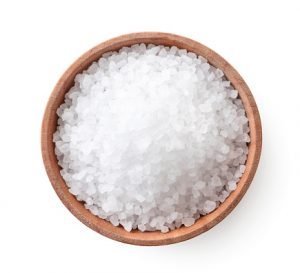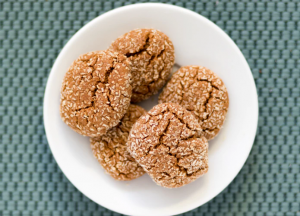Zinc is a vital trace nutrient that is necessary for human health. The amount of zinc required by the body is minimal, and therefore the body does not store the excess zinc.
Zinc can be obtained from foods or supplements. Some of the foods rich in zinc include; animal products, legumes, nuts, and whole grains.
Zinc sources are readily available hence making it easy for people to consume it in adequate amounts.
zinc deficiency in the body can cause the inability of testis and ovaries from functioning well, impaired growth, and chronic diarrhea, among other zinc-related deficiencies.
Uses of zinc in the body
Zinc is a vital nutrient in the body that is used to perform many different tasks. Some of them are discussed below.
1. Aids in the healing of wounds.
The availability of zinc in the body helps to maintain the skin structure and, therefore, to ease the healing process of wounds. When one is injured, he or she is advised to increase the intake of foods rich in zinc.
Also, there are pastes made of zinc that can be applied to the wounded area and also promote the healing of the wound.
2. Used in treating diarrhea.
Taking foods rich in zincs or zinc tablets can help to treat diarrhea by reducing its severity and duration and also helps in reducing the future cause of diarrhea.
Pregnant women are given zinc after delivery to prevent incidences of diarrhea in infants within the first days of life.
3. Treat and prevent pneumonia.
Zinc plays a vital role in preventing and treating pneumonia. Undernourished children may take foods rich in zinc to prevent pneumonia.
Zinc lozenges can also be used in treating pneumonia and reducing its duration and severity.
Zinc also helps in reducing common cold symptoms.
4. To strengthen the immune system.
Zinc is one of the nutrients required by the body. Therefore, it is very important to the functioning of the body.
Zinc helps to ensure the proper functioning of body cells and also cell signaling. It is, therefore, useful in strengthening the immune response of the body. This implies that a shortage of zinc in the body leads to the weak immune response to body cells.
5. Improving fertility.
Zinc deficiency in the body is likely to cause infertility in both males and females. To men, low zinc status in the body is characterized by low sperm quality. Similarly, low zinc status among women leads to the inability of ovaries to function well.
Therefore, zinc plays an important role in improving fertility for both men and women.
4. Treating acne.
Acne is a skin disease usually of the face that is characterized by red pimples. People with acne have low blood and low levels of zinc. Taking foods rich in zinc may help to reduce the severity of acne and help in treating the acne.
Also, applying zinc in combination with other compounds to the affected area may help to reduce the effect of acne.
5. Improving the functionality of the brain.
Zinc is important in ensuring the proper functioning of cells. Taking zinc can improve the working of a neuron (a cell of the nervous system). When the functioning of a neuron is improved, the working of the brain is also improved.
6. Reducing age-related diseases.
Zinc intake in the body helps in reducing the risk of age-related diseases. Some age-related diseases like macular degeneration and oxidative stress can be avoided by taking foods rich in zinc. People who consume zinc are at a lower risk of being affected by age-related vision loss that mainly affects older adults.
Zinc may relieve oxidative stress by improving the immune response of T-cells hence protecting older people from diseases caused by this disorder.
7. Treating anorexia.
Anorexia is a loss of appetite that occurs as a result of the disease. Zinc deficiency in the body causes a loss of appetite. Taking zinc foods or zinc supplements can help to control anorexia among adults and children. Therefore, zinc helps to control symptoms related to loss of appetite like loss of weight.
8. To improve bone strength.
a minimal amount of zinc in the body causes bones to weaken and also osteoporosis.
Osteoporosis is a bone disease that commonly affects women who are at their menopause age. Zinc intake with other compounds can help in reducing this risk and also strengthen the bones.
9. Preventing stomach ulcers.
Zinc intake helps to control ulcers in the stomach. Peptic ulcers that occur along the digestive tract can be prevented by consuming foods rich in zinc. Zinc, together with other compounds, can be used to make medicines that can be used to control stomach ulcers.
10. Reducing depression.
Intaking of zinc helps to reduce risks associated with depression. Zinc plays a role in lowering depression and preventing risks associated. Zinc can also be used together with other antidepressants to improve depression.
11. Used by diabetic people.
Ingesting more zinc helps in reducing blood sugar and increasing insulin levels in the body. Zinc also helps in reducing weight in diabetic people who are obese.
Also, diabetic people can use zinc hyaluronate gel to apply to foot ulcers as it helps to heal faster.
12. Oral treatment.
Some toothpaste and chewing gums contain zinc. Brushing teeth using toothpaste containing zinc helps to control plaque and gingivitis that usually occurs to teeth.
Chewing gums containing zinc helps to minimize bad breath.
13. Used to reduce skin infection and leprosy.
Zinc, combined with other compounds, can be used to protect the skin against infections and leprosy.
Applying zinc sulfate gel to the skin helps to control a skin infection caused by the Leishmania parasite. Also, taking zinc together with ant-leprosy drugs helps to treat leprosy.
14. Reduce inflammation.
Chronic inflammation caused by oxidative stress can be reduced by taking foods rich in zinc or medicines that contain zinc. By reducing inflammation, the body is protected against risks of heart diseases, and cancer, among others.
15. Reducing muscle cramping.
People who suffer from cirrhosis and zinc deficiency are likely to experience muscle cramping. However, taking zinc foods or zinc supplements helps to reduce this disorder.



